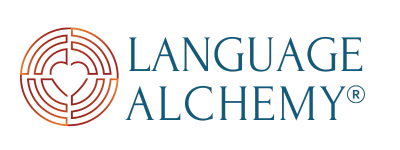66. When Things Are Hard
“When things are hard, I learned to use observational language in my internal dialogue,” explains host Alejandra. As a transformative communication teacher, Alejandra understands that it’s human to feel triggered by challenging interactions. Instead of disconnecting from uncomfortable situations, Alejandra gives tips for when conversations become hard.
Through exploring her personal experiences, Alejandra demonstrates how common it is to have awkward or upsetting interactions. We may act angry, embarrassed, or simply want to run away. To stray away from unhelpful reactive habits, Alejandra recommends connecting to our bodies and determining what actions we want to take that align with our values.
Even when things are difficult, we should still practice mindful communication. Learn more about moving past defensive reactions, dealing with uncomfortable social situations, and the benefits of using observational language.
Quotes
• “When I faced hard things, hard interactions and conversations, not only did I not know how to communicate skillfully with a person with whom I had that difficult experience, but also, I didn't know how to not get taken over by the intensity of feelings, and stories I would make up in my mind in my internal dialogue. And then inevitably, habitually, the decision would be the same. And that decision was to disconnect, disconnect from everything from the other person and also disconnect from me by trying to do something that would offer me some kind of distraction from this difficult interaction.” (5:37-6:25 | Alejandra)
• “When things are hard, I learned to use observational language in my internal dialogue.” (9:27-9:33 | Alejandra)
• “Observational language allows me to consider the situation with clarity and neutrality. When I don't use observational language in my internal dialogue to recall what's hard, it's much easier to get hooked by reactive communication habits.” (9:59-10:17 | Alejandra)
• “The more I connect to my values, the more I can connect my capacity to show up as an adult and choose to take skillful action based on my values.” (12:28-12:42 | Alejandra)
• “Transformative communication does take work. But before we can take on all this work of transformative communication, we need to tap into a sense of openness and humility to learn.” (15:19-15:36 | Alejandra)
Links
To take the What's Your Most Self-sabotaging Communication Habit quiz, visit: languagealchemy.com/quiz
To ask a question or request a topic, visit: languagealchemy.com/podcastquestion
To join the mailing list, and view show notes, visit: languagealchemy.com
Podcast Music composed by Gary Lapow: open.spotify.com/artist/1HlMhcNfKIELxYil5mVqDI

